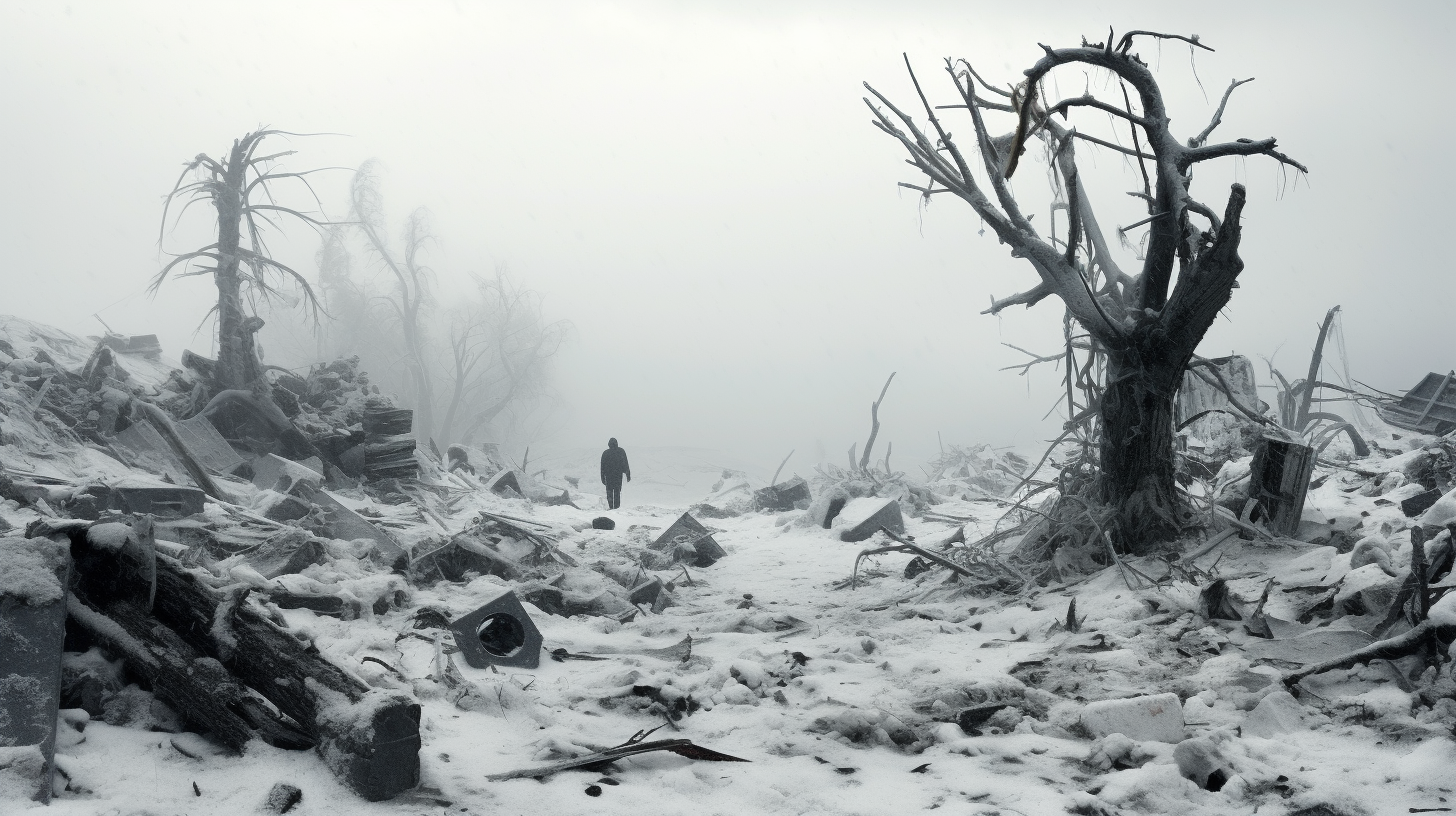In a world where the jubilant dance of snowflakes descending has become folklore, we examine the existential grapple that humanity now faces—where once winters draped in white where common, they are now a tapestry of tales lost to time. ‘When Snowfalls Are But Ancient Memory’ unveils the stark reality of climate change’s relentless march, eclipsing the ephemeral beauty of snow in a once temperate world.
The last generation to witness the descent of snowflakes recounts their memories in hushed reverence, their narratives imbued with a profound sense of loss. The globes and picture books—vestiges of the snowy world—are now bizarre relics in the dusty corners of museums, eliciting curiosity and bewilderment alike from those young enough to grow in the perennial warmth of today’s endless autumns.
One might draw parallels with the mythical power of the petrichor—the earthy scent of rain on dry soil—now a fragrance ensnared within the confines of artificial atmospheres or, perhaps more fittingly, locked within the scripts of dystopian fictions. Yet unlike petrichor, the cold embrace of winter has eluded even the capabilities of boundless human ingenuity to simulate.
Our chronicle unfolds amidst the desolate backdrops of what were once bustling ski resorts, the silent sentinels of abandoned snow machines stand in solemn testimony to the bygone era of winter sports. Here we delve into the domino effects of such environmental upheavals, where industries, economies, and cultures centered around snowfall have been reduced to echoes in abandoned lodges, echoing the reverberations detailed in earlier works, including the chilling ‘Frozen Horror: Requiem for the Poles’.
The concept of a ‘White Christmas’ that crystallized into enduring carols and tales, is now a foreign fantasy. And while scientists persist in their warnings and advocacy for change, these melodies accrue newer, somber meanings; they are dirges mourning the demise of the gaiety and charm of yesteryears’ winters.
Phenomenological studies abound with evidence that the dissipation of snow and the shift toward lighter, erratic precipitation patterns, have transfigured entire ecosystems. This mutation extends beyond the flora and fauna of our landscapes; it reaches deeply into the human psyche, altering traditions, mental health norms, and societal behaviors – much like the frigid decimation outlined in ‘The Desolate Anthem of Vanishing Glaciers’.
While environmental activists fight an uphill battle against the addled remnants of policy and economy, it becomes glaringly clear that the fabric of winter—with its frosty breaths and cozy hearths—has been unraveled by the same hands that once stretched towards snowflakes in wonder. The article’s crescendo is not of hope but of irreversible truths and what legacy will be inscribed in the annals of history about humanity’s relationship with the Earth.
In closing, the world still turns, indifferent to the sorrow of its denizens. As the planet wades deeper into this ‘post-winter epoch’, individuals across the globe grapple with the duality of affection and remorse towards the chilling spectacle of snow–adoring its memories and grieving its absence.
